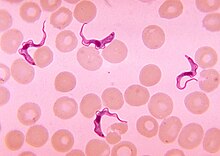It's an interesting question as to whether ME/CFS is a 'new' illness or not. Certainly it's seen as something that only entered public consciousness in the past few decades. Off the top of my head I can think of three reasons why that might be the case:
1) The hygiene hypothesis: it is true that Brits sent out to Empire would be exposed to all sorts of nasties while they were there. But unlike today, they'd have grown up in an environment in which they'd have had regular exposure to an equivalent amount of different bacteria/parasites growing up. For example, infant mortality in the UK in 1900 was more than
five times that of India today (
www.gapminder.org). Fair to say that if you made it to adulthood you had a well-primed immune system. So perhaps people really didn't contract ME/CFS until the recent day.
2) People did have it, but it wasn't discussed or diagnosed. There's already the mention of Florence Nightingale above and I've also heard ME/CFS as being one of the four hundred diseases that historians have retrospectively diagnosed Charles Darwin with. But given that today ME/CFS is a disease of exclusion - a mysterious illness where patients are serious ill but (routine) tests are normal - it would be hard to identify as such when no such tests were available. I imagine serious illnesses with little in the way of explanation were the norm. We should remember that while ME/CFS is seen as a rich White person's disease, the one study that looked at prevalence in Nigeria suggested a
higher rate of ME/CFS in adults there. (
https://www.ncbi.nlm.nih.gov/pubmed/17439996)
3) Bit of a grim thought this: but in an age where there was no welfare state would we expect to see reports of people suffering decades-long illnesses that left them totally incapacitated? Or would they have simply not survived?
(FWIW it's worth I think I've put these are in decreasing order of likeliness)

